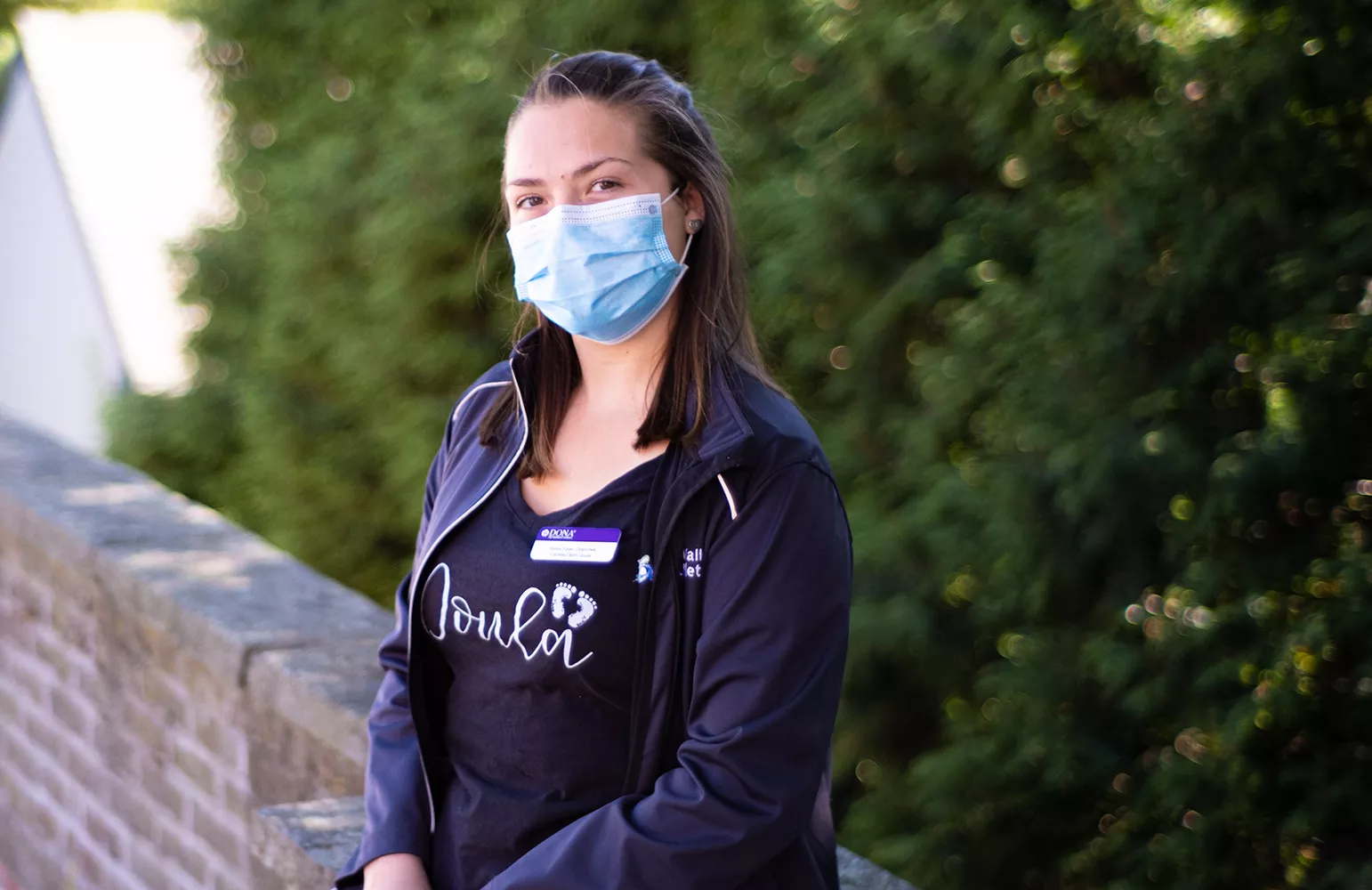
Emma Yoder '21, a biology major and certified birth and postpartum doula, assists birthing persons and expecting families by offering childbirth education, tools to cope with labor, and support throughout the birthing journey.
Prior to her certification as a doula, Emma shadowed a midwife in Lancaster, Pa., who assists with home births in the Amish community. Emma had been interested in birth from a young age, so she sought this opportunity to gain professional experience. While less-experienced people often are not permitted to attend births and prenatal appointments, the midwife welcomed Emma when she learned of her aspiration to attend medical school and become an OB/GYN.
“When I started attending births I was only 17 years old, and as such a young person I was often intimidated that people around me would assume I was incompetent and inexperienced,” says Emma. “What I realized is that if you have a passion, you have to pursue it; you can’t stand in your own way.”
After completing her training through DONA International, Emma offered volunteer services to expecting families to obtain her certification.
“I began to see the inequalities so many of my clients were experiencing from the hospital staff and providers. How so many of my clients of color, single parents, and low-income families were not given proper prenatal education, were not offered the option of informed consent prior to performing many interventions, and were just not properly educated on the choices they did have! A doula with compassion and experience starts the conversation to bring that power back to the family—and the birthing person.”
After her initial volunteer work and certification, Emma started her company, Emma Yoder Doula Services. Emma read books on how to start a company and filed her application with the state of Pennsylvania. Once her application was approved, Emma used the savings from her soap business—which she ran as part of her work with Green Alchemy Farm—as seed money to form the company and begin marketing her services.
Starting a business was necessary for tax and insurance purposes, as it allowed Emma to legally run her practice as a private contractor. Having a business also enables Emma to work with more organizations and doula co-ops, since some co-ops only refer clients to doulas who establish an independent practice.
While some people view doulas as merely “labor coaches” or equate their responsibilities with those of a midwife, Emma highlights the advocacy work that being a doula requires.
“In the hospital it is easy to feel like the control is out of your hands as a birthing person—however, that isn’t true, and it is our role to offer tools, education, and support that emphasizes otherwise. I am glad that the disparities within childbirth care have begun to be highlighted in the media, since doulas have been a strong force against these disparities in the birthing world for years.”
During the pandemic, many hospitals have prohibited doulas from providing in-hospital support, so Emma’s work has shifted to include more prenatal education and visits over Zoom. This virtual support involves meditation exercises, work on breath and movement, and childbirth education that expecting families can complete remotely. Emma’s training as a yoga instructor also helps her offer a whole-body, mindfulness perspective to her clients.
In addition to managing her business, Emma works with the Philadelphia Alliance for Labor Support (PALS), an organization that provides low-income families with access to doula care. Through her work with PALS, which operates in connection with the Hospital at the University of Pennsylvania, Emma has participated in lectures on virtual labor support during the pandemic.
“It is such a gift to be a part of a family’s birthing journey, to laugh and cry together, to create a circle of support and compassion throughout the toughest moments. I couldn’t be more grateful to go into medicine myself having seen behind the veil, and I hope that one day I can bring that experience and compassion to my patients.”